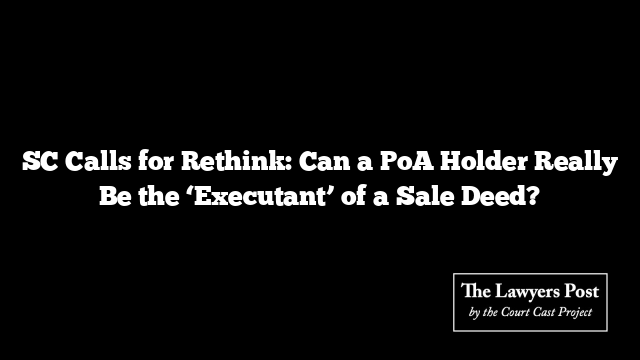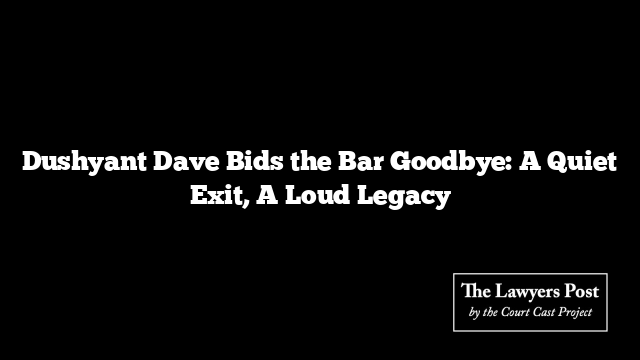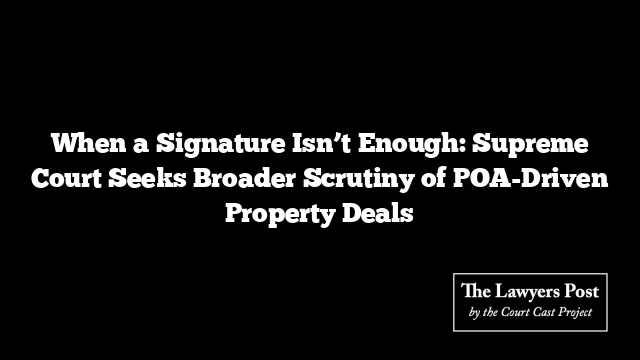In a move that could reshape how property sales are registered across India, the Supreme Court has pressed pause on a long-standing interpretation of the law surrounding Power of Attorney (PoA) transactions. On Tuesday, a bench of Justices Sanjay Kumar and KV Viswanathan referred a pivotal question to a larger bench—should a PoA holder be treated as the “executant” of a sale deed simply because they sign it on behalf of someone else?
The Court wasn’t convinced.
At the heart of this legal conundrum is a 2009 ruling in Rajni Tandon v. Dulal Ranjan Ghosh Dastidar, which had essentially said: if an agent executes a document under PoA and then appears before the registrar to register it, no further authentication is needed. The logic was that the agent becomes the “executant” of the document by virtue of acting under the authority of the principal.
But the current bench has pulled the brakes on that reasoning.
The judges emphasized that just because someone signs a document on another’s behalf doesn’t mean they morph into the executant themselves. According to Section 32(a) of the Registration Act, 1908, an executant is the person who executes the document in their own capacity—not someone signing as an agent. A PoA holder, they clarified, operates strictly in the shoes of the principal, not as an independent actor.
So, if the PoA holder isn’t the “executant,” what then? The answer, the Court said, lies in Section 32(c), which allows a document to be presented by someone with the express authority to do so. But to walk through that door, the agent must still meet the conditions of Sections 33 and 34—especially the authentication of the PoA document.
In other words: just showing up with a signature isn’t enough. The registrar must confirm identity, verify the execution, and ensure the authorization itself is legitimate.
The Court pointed out a glaring inconsistency in the earlier interpretation. Under Rajni Tandon, an agent with a notarized PoA could execute and register a sale deed with minimal scrutiny. But if that same person appointed another agent just to present the already-executed sale deed for registration, the second agent would have to jump through all the authentication hoops.
The result? A strange and potentially dangerous legal loophole that, in the Court’s words, opens the door to misuse of property transactions and could corrode trust in public property records.
The takeaway from the bench was clear: the law cannot rest on convenient assumptions. Until a larger bench steps in, the status of a PoA holder during sale deed registration remains suspended in a legal twilight.
The question now passes on to a broader bench—and with it, the fate of how property registration through agents is treated across the country.





